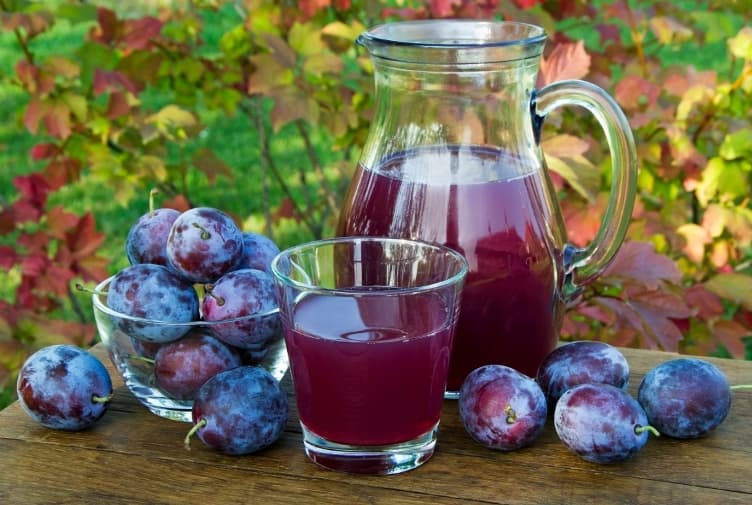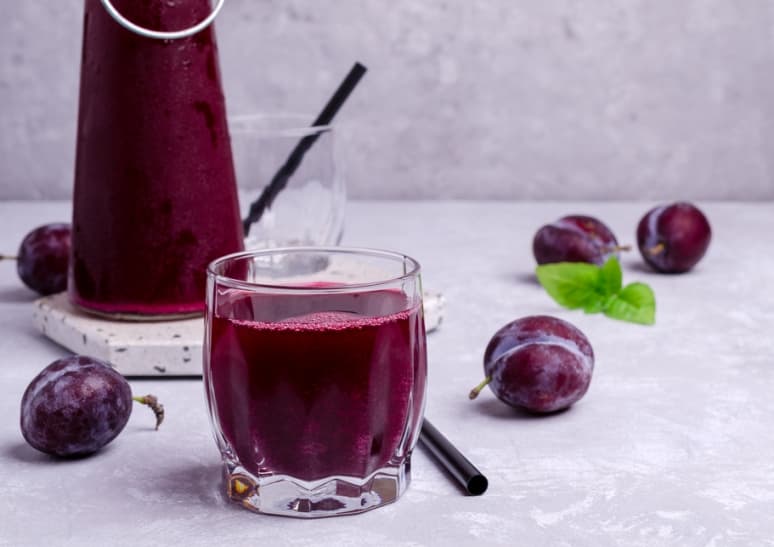Is Prune Juice good for Diabetics? Analyzing Glycemic Index And Nutritional Value
If you’re looking for a healthy juice option, you might want to try prune juice.
Prune juice is a juice with a sweet, slightly tart flavor, made from dried prune, which is a plum-like fruit. It’s quite safe for regular people and has a mild laxative effect that can be helpful for people who are struggling with bowel movements.
But what about the diabetic people?
Is this beverage safe for them too? If so, what makes it good for people with diabetes?
In this guide, we will analyze the glycemic index of prune juice and other nutritional value to determine whether prune juice is good for people with diabetes.
Table of Contents
Is Prune Juice Good For Diabetics?
Prune juice can help regulate blood sugar levels and is recommended for diabetics because of its relatively low glycemic index. But what is the glycemic index, and how is that relevant for diabetics? The glycemic index measures how a given food affects blood sugar levels. The higher the glycemic index, the greater the effect on blood sugar.
Why Is The Glycemic Index Important For Diabetics?
The glycemic index can be helpful for people with diabetes as it can help them to choose foods that will have a lower impact on their blood sugar levels. However, the glycemic index is only one factor to consider when choosing foods. Other factors, such as the amount of fat and protein in a food, are also important.
What is the glycemic index of prune juice?
What is the safe range of glycemic index for diabetics? If you do have diabetes, it’s recommended by a healthcare professional that you take foods that have a moderate to low glycemic index rating.
Prune, as a fruit, has a glycemic index of 29, which is extremely low by any standard.
But that is the glycemic index of unprocessed prune of 1 serving, which is around 60 grams.
What about the glycemic index of processed prune juice that has more quantity, for example, 250 grams of prune juice?
It turns out that even the processed prune juice 250-gram serving has an extremely low glycemic index of 43.
What makes prune juice safe for people with diabetes?
Along with the low glycemic index, another thing that makes prune juice safe for diabetics is its high levels of soluble fiber.
Soluble fiber in prune juice slows down the digestion of carbohydrates. Soluble fiber in prune juice helps to regulate blood sugar levels and prevents spikes after meals. In addition to its soluble fiber content, prune juice is a good source of vitamins and minerals, including potassium, which is vital for blood pressure control.
Does prune juice contain sugar?
The short answer is yes, prune juice does contain sugar.
But does prune juice raise your blood sugar? No!
Because not all sugar is created equal, the sugar in prune juice is natural, and a good amount of fiber accompanies it. This means that the sugar in prune juice is unlikely to cause the spikes in blood sugar levels that you might experience with other sugary drinks.
So if you’re looking for a healthy juice option that won’t cause blood sugar spikes, prune juice is a good choice. If you are purchasing from a store, just check the label to make sure your juice doesn’t contain any added sugar.
You can also try to make it at home as well as there are loads of recipes available online that will teach you to make prune juice.
Should people with diabetes drink prune juice every day?
Prune juice can be a helpful addition to the diet of someone with diabetes due to its nutritional values and safe glycemic index. But, it’s also important to remember that moderation is key, just like all the other things.
So, should you drink prune juice every day, and if so, how many prunes can a person with diabetes eat or drink daily?
If you enjoy drinking prune juice and want to make it a part of your daily routine, the general recommended amount is 50 to 60 grams, or 1 cup, of prune juice if you intend to drink it daily.
Health benefits of drinking prune juice for diabetics
Prune juice has long been touted as a natural remedy for constipation. This is because prunes are high in fiber, which can help keep things moving through your digestive system. They also contain sorbitol, a natural laxative that can help loosen your stools.
But that’s not all prune juice can do for your health. Here are some other potential benefits of this tart and tangy beverage:
- Prunes are a good source of vitamins A, C, and K, as well as potassium and magnesium. These nutrients are important for maintaining bone health.
- Prunes contain fiber and pectin, which can help lower cholesterol levels.
- The antioxidants and presence of Vitamin A, Vitamin C, and Calcium in prunes will help protect your skin from damage and aid in healthy skin cell growth.
- Drinking prunes juice can help you feel full for a long time and may promote weight loss.
- The potassium and magnesium in prunes can help promote bone health and may help protect against osteoporosis.
Check: Infusions allowed for diabetics
Side effects of Prune Juice
Prune juice is generally considered safe and has a long history. However, some people may experience side effects like gas, bloating, and diarrhea. These effects are most likely to occur when prune juice is consumed in large quantities or when it is consumed on an empty stomach.
Conclusion
So, is prune juice good for diabetics? After analyzing the glycemic index and nutritional value of prune juice, we can safely assert that prune juice is quite a healthy choice for people with diabetes.
However, if you’re considering adding prune juice to your diet, start with a small amount and increase gradually as your body adjusts. If you experience unpleasant side effects like bloating or diarrhea, stop consuming prune juice and consult your doctor.
References:
1. diabetes.co.uk/diet/glycemic-index-range.html
2. livestrong.com/article/415499-glycemic-index-of-prunes/
3. researchgate.net/publication/240805320_Dietary_fibre_content_and_cell_wall_polysaccharides_in_prunes

